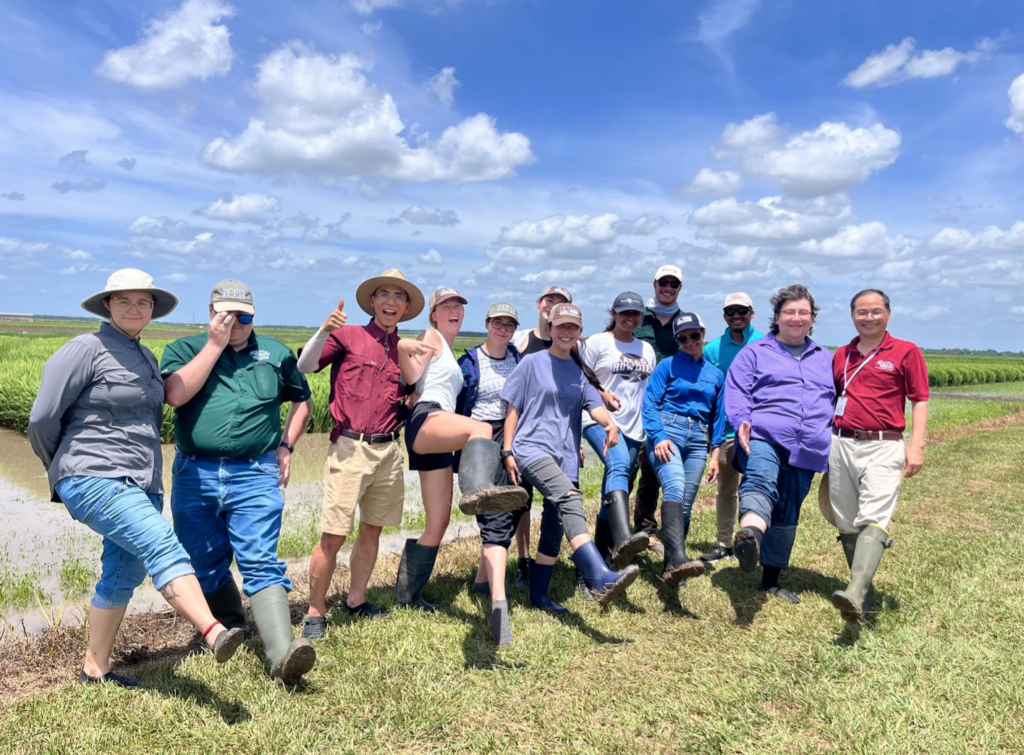The Bioenvironmental Sciences (BESC) curriculum at Texas A&M University is a progressive and exciting degree for all students with an interest in solving complex environmental problems. This degree program is challenging, multi-disciplinary, relevant and flexible. The requirements to obtain a satisfying career go well beyond the classroom, and our students are well prepared for multiple careers in the environmental arena. High impact learning happens when students are actively engaged in the educational process and their experience expands beyond the classroom and is applied in their personal and work lives. High impact learning provides hands-on experience and the ability to work closely in a diverse setting. Students engaged in high impact learning often see improvement in grade point averages and are more involved in their education.

Field Studies
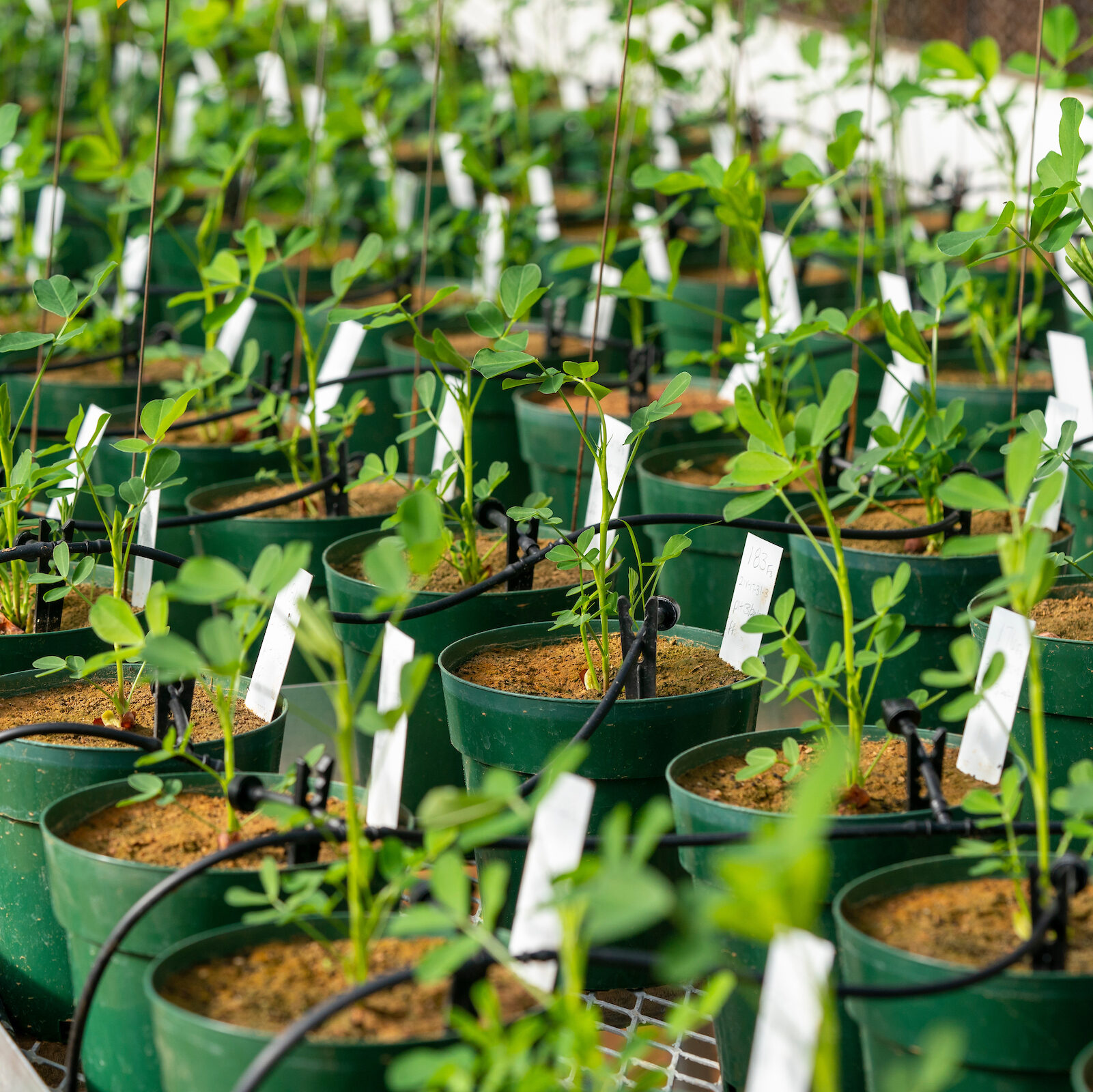
Poster Symposium
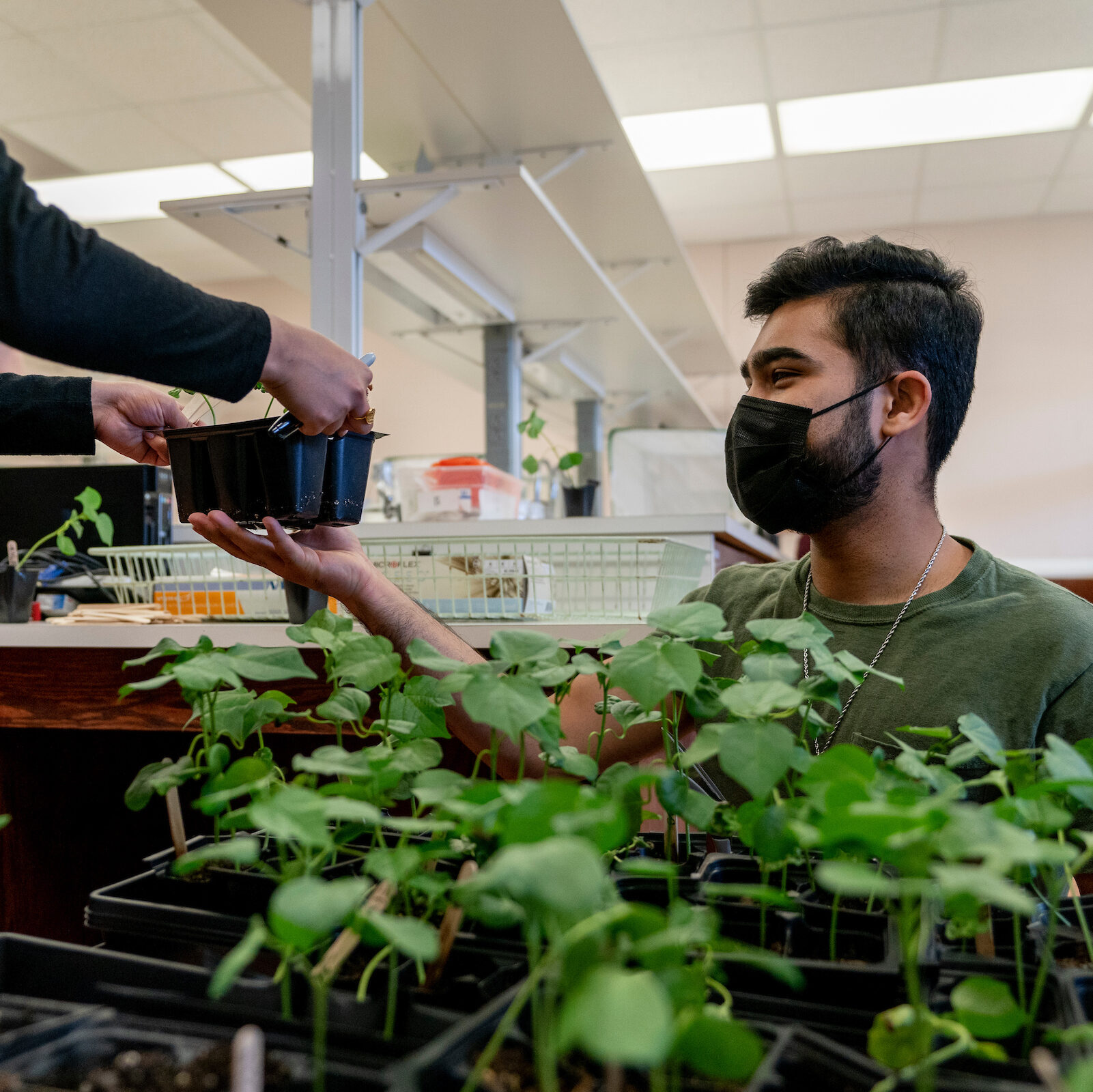
SCARLET Program
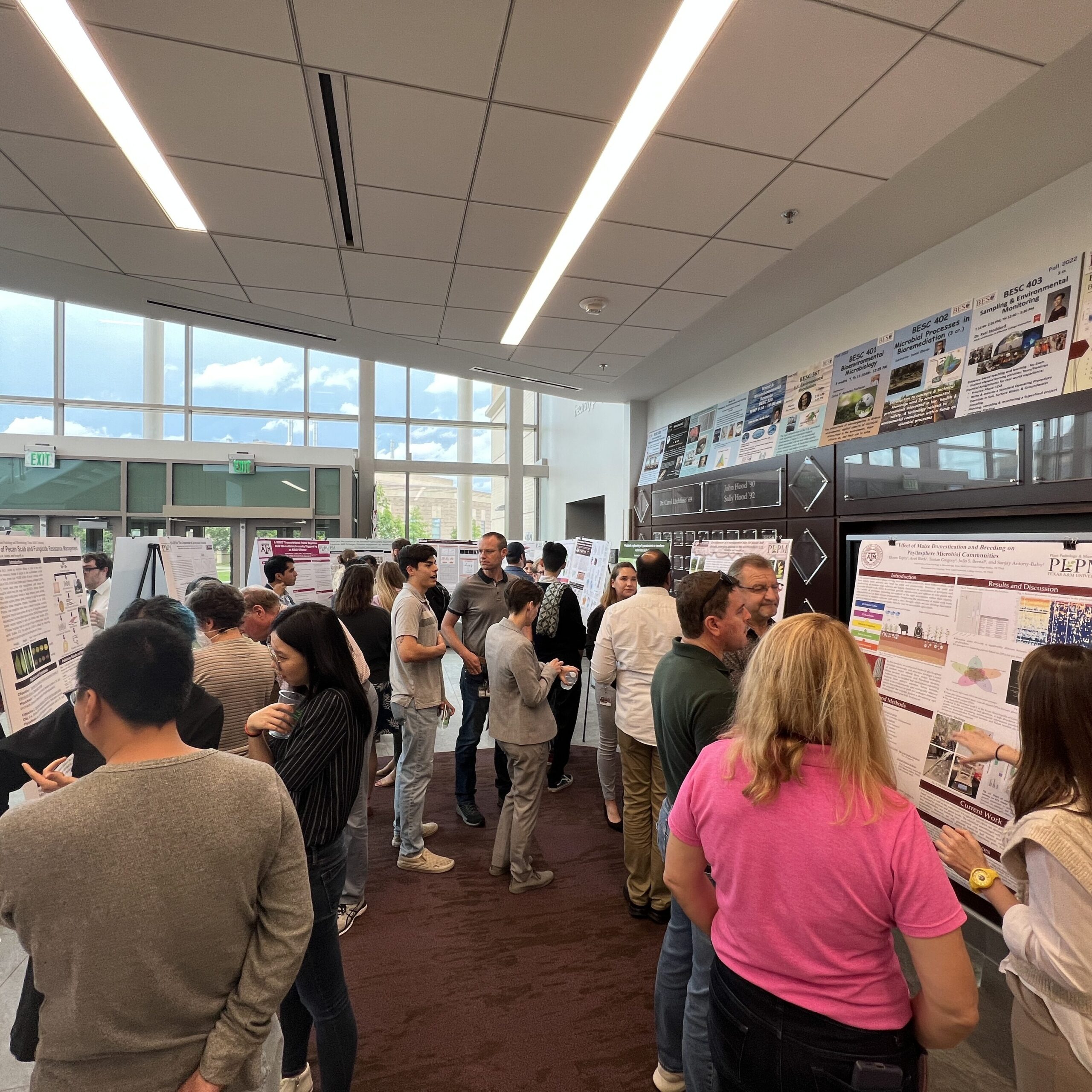
Extension Summer Research Program
BESC 484 – Field Studies (“The Internship Course”)
Internships are an important high impact experience for all students and are a required component of the BESC Degree for all undergraduate students. Internships provide a realistic view of what an environmental career or research experience entails. Student interns gain practical, hands-on knowledge and experience. Internships provide an opportunity for students to network with career and research professionals and build valuable relationships as students prepare to embark on their professional careers and/or graduate studies.
What?
- It exposes students to a professional experience or research laboratory related to Bioenvironmental Sciences. Students can work with a company, government agency (local, state, national, international), or on a science-based project with a faculty member in a research lab. All experiences are subject to departmental approval.
- BESC 484 is a REQUIRED course for the BESC/ENST/USAL-ENB degree plans. It must be completed in order to graduate.
- BESC 484 aligns with a supervised internship or research
- BESC 484 is writing-intensive, 3 credit hours, and taken over a full academic term (fall, spring, or 10-week summer).
When?
- Students applying for the 484 course should have a junior or senior classification or instructor approval.
How do I Participate?
Step 1: Students identify an internship or research opportunity
- Examples from previous students
- Speakers from NAEP meetings
- Facebook pages for TAMU, BESC, and NAEP
- TAMU Career Center, and Jobs for Aggies
Step 2: Students apply for BESC 484 approval
- For the semester associated with the internship or research experience
- Visit the department website to fill out the BESC 484 Approval Form
- Applications are due two (2) weeks before the start of the semester
- Review is done by BESC 484 approval committee
Step 3: Students watch their official TAMU email for course instructions
- One to two weeks before the academic term begins, the academic advisor will register students with approved experiences into appropriate sections for BESC 484 and assign faculty
- Once approved and registered, students must pay required tuition/fees for the course.
- Students are instructed to contact their assigned faculty members for course syllabus, outline course expectations, and due dates.
Step 4: Students engage in the BESC 484 course
- Communicate 484 expectations to supervisor, and complete work as assigned by instructor
- All 484 assignments will be submitted electronically— there is no physical class. Use of e-mail or eCampus is currently at the discretion of assigned faculty members.
Questions about Field Studies?
Email Sam Murdock
[email protected]
Poster Symposium
Each year our undergraduate students commit to research a topic of their choosing. Working alongside faculty and graduate students, undergraduate researchers spend time in the laboratory and in the field for a hands-on research experience. At the conclusion of this experience, each student compiles data to create and present a poster about their research project at the annual BESC Undergraduate Poster Symposium. This high impact learning experience offers students the chance to learn more about graduate school, sharpen their focus for future careers, and incorporate impressive experience, skills and awards on their professional resumé.
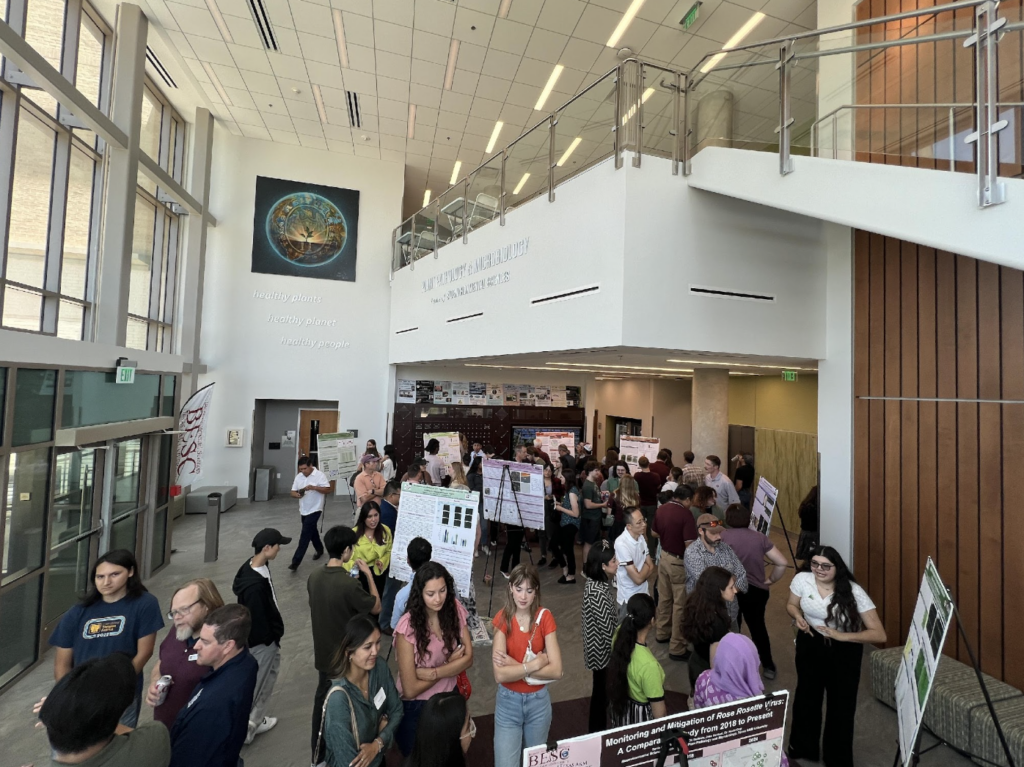
Questions about the Annual Poster Symposium?
Contact Dr. Thomas Chappell
213B PLPM Building
(979) 862-7518
[email protected]
SCARLET Program
The Student Careers in Agricultural Research, Learning and Extension Training (SCARLET) program is a federally funded internship opportunity for undergraduate students (sophomore, junior, and senior). The program includes training with a mentor. You will be able to expand your skills while learning side by side each mentor’s team. SCARLET also offers a series of workshops and seminars to help you improve your resume and to help you expand your career options. The SCARLET team of mentors will select 10 participants for 2025.
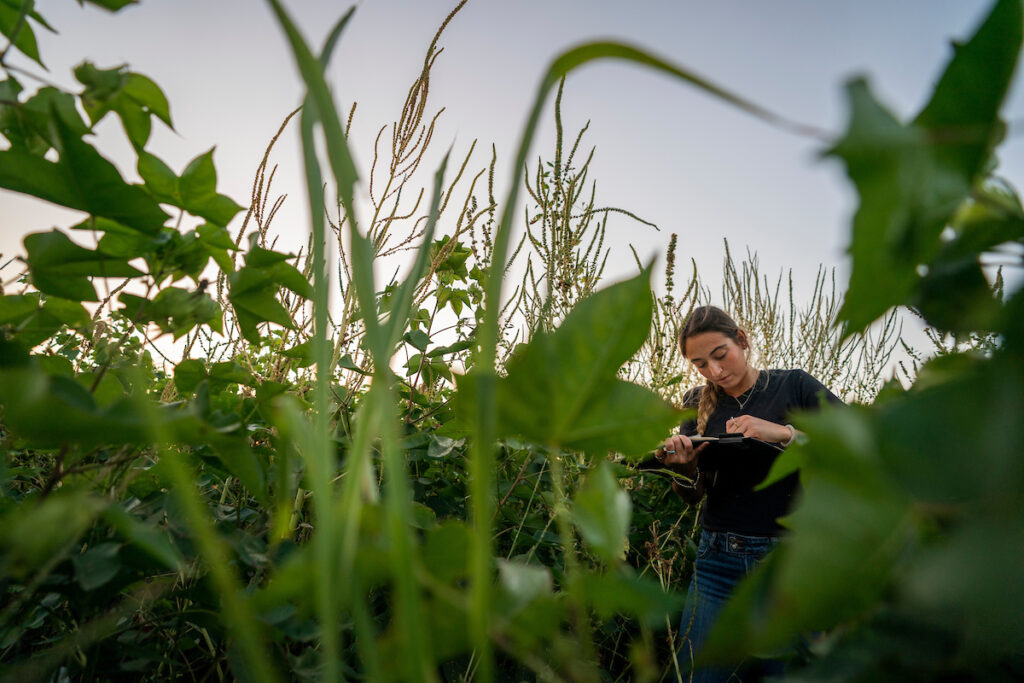
What is Included?
- Lodging
- Flights
- Stipend
What Do you Need to Apply?
- Your GPA
- A CV/Resume in PDF format
- A 500-word (max) statement of interest detailing your interest in participating in SCARLET, your career goals, and why you want to work with the specific mentors. This is allowed only on PDF format.
Application Deadline
March 17, 2024 at 11:59pm CT
Summer Research and Extension Experience for Undergraduates at the Interface of Plant, Microbial and Bioenvironmental Sciences (IPMB REEU)
2023 IPMB REEU will be structured so that students can transition from directed to independent research and extension activities. The intellectual focus for our IPMB REEU program is on the interface between plants (key crops), microbes (fungi, bacteria, and viruses), and the environment (soil, water, and pollutants). Our REEU will be composed of two major phases: (a) a 10-week summer experience at TAMU and (b) the long-term tracking of students upon return to their home universities and during pursuit of their graduate or professional careers.
